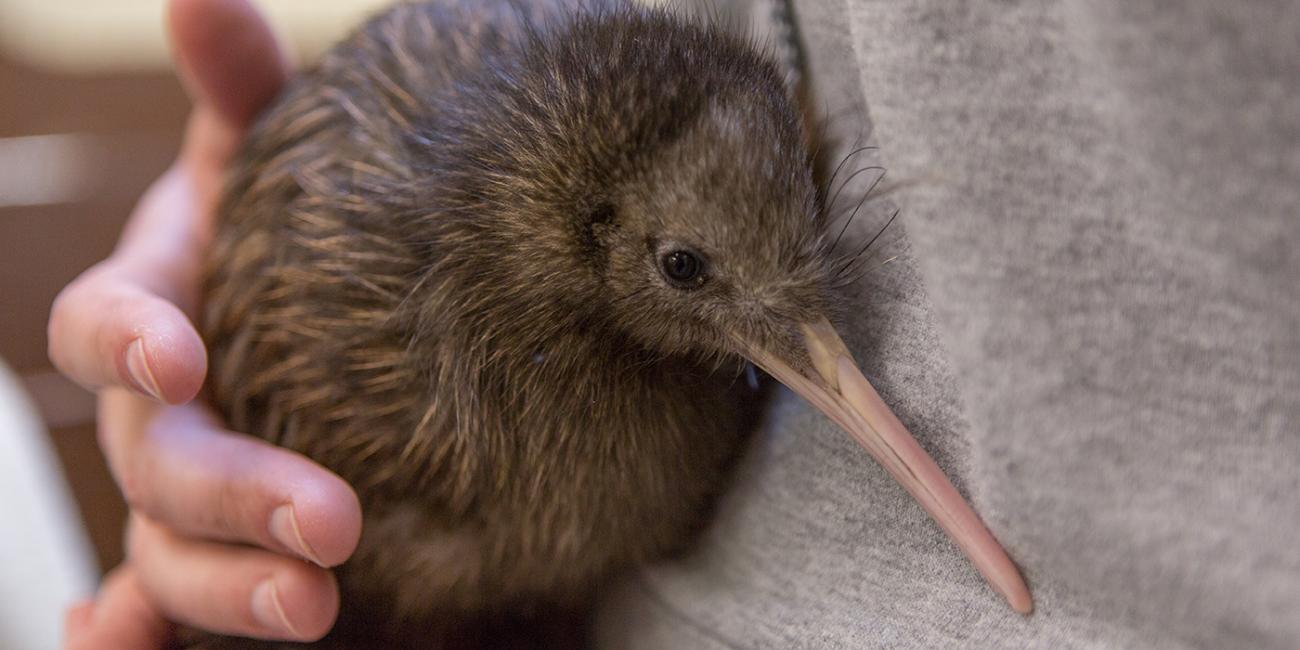Name the Kiwi Chick!
Thank you to all those who submitted names for the Smithsonian Conservation Biology Institute's female kiwi chick!
Each of the three final name choices below were submitted multiple times by kiwi lovers from across the United States, New Zealand and Australia. Vote for your favorite via Twitter (@NationalZoo). The public vote closes Nov. 16 at 2 p.m. EST.
- Aroha — Māori for love
- Kaitiaki — Māori for guardian
- Whetu — Māori for star
About the Kiwi Chick
The kiwi chick hatched overnight between July 29 and 30, and is the first female offspring from her parents Ngati Hine Tahi and Ngati Hine Rua. According to keepers, she is calm and laid-back, but she could become more cautious as she grows. Her favorite food appears to be mealworms, but she readily eats all of her food and has almost tripled her weight in three months. Because kiwi are nocturnal, she sleeps during the day and does not interact with keepers much outside of routine health checks and weigh-ins.
The kiwi chick's parents arrived at the Smithsonian Conservation Biology Institute in 2010 and were gifts from New Zealand. Kiwi are sacred to the Maori people in New Zealand and are the country’s national animal. All three of her parents’ male offspring living at SCBI have Maori names. Their names are Kaha, which means “joy,” Hari which means “strong” and Kake which means “to overcome.”
Brown kiwi are endangered due to non-native predators introduced by humans. They lay the second-largest eggs for body size of any bird—an average of 15 to 20 percent of the female’s body weight. In 1975, the Zoo became the first facility to hatch a brown kiwi outside of New Zealand. SCBI has hatched six kiwi eggs since 2012. The chicks hatched there will help create a self-sustaining and genetically diverse population in human care.
How to Enter
Suggestions will be accepted until Nov. 5 at 11 p.m. EST. Three names will be selected and will then be put up for a worldwide public vote via Twitter poll (@NationalZoo) from Nov. 13 to Nov. 16.
Any member of the public is eligible to enter the kiwi chick naming contest. To be considered, entrants must submit a name accompanied by an explanation (in 500 characters or less) of why the name was submitted. The Smithsonian and representatives from the Embassy of New Zealand will review the list of registrants with the eligibility factors below in mind and then select three names for a public vote based on their stated reason for the name they have submitted.- Significance to Maori culture and the country of New Zealand
- Connection to kiwi biology and facts about the species
- Tie to field of conservation biology and the need to preserve, study and help save species like the endangered kiwi
[block:webform=client-block-10117]
